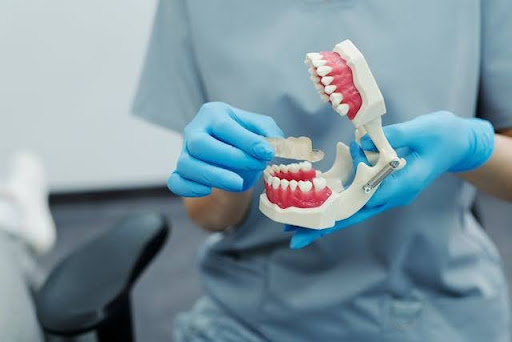Do you ever find yourself cringing in pain while enjoying your favorite hot soup or sipping on a cold drink? If so, you’re not alone. Tooth sensitivity is a common issue that can turn simple pleasures into painful experiences. The good news is, that there are everyday reasons behind this sensitivity, and understanding them can help you find relief.
To give you an idea, let’s dive into the world of sensitive teeth and explore how to tackle this discomfort in a way that feels like a friendly conversation.
Worn Tooth Enamel
Imagine your tooth enamel as a superhero cape, shielding your teeth from the outside world. But what happens when this armor starts to wear down? Well, your teeth become more sensitive. Enamel erosion can occur due to aggressive brushing, indulging in acidic foods, or even grinding your teeth. It’s like taking off the superhero cape and exposing the sensitive nerves underneath.
To tackle this, try switching to a softer toothbrush and opting for a toothpaste that’s gentle on your enamel. Your dentist might also recommend fluoride varnishes, which act like a power-up for your enamel, making it stronger and more resistant to sensitivity.
Gum Recession
Have you noticed your gums playing a disappearing act? Gum recession is like a magician revealing more of the tooth than you bargained for, making those nerves more susceptible to sensitivity. Causes range from gum disease to enthusiastic brushing or simply genetics.
Your go-to family dentistry Eden Prairie MN might suggest treatments like scaling and root planing to get rid of bacteria and smooth out the tooth surface. Using a desensitizing toothpaste can also be like a cozy blanket for your exposed tooth roots, offering relief from sensitivity.
Tooth Decay
Cavities are those tiny troublemakers that can lead to tooth sensitivity. It’s like a sneak attack from bacteria, producing acids that erode your enamel and create tiny holes in your teeth. The result? Painful sensitivity.
The best defense against cavities is a good offense – practice regular brushing, flossing, and routine dental check-ups. If your dentist finds any signs of decay, they can patch things up with fillings, preventing further sensitivity.
Cracked Teeth
A cracked tooth is like a hidden obstacle on your dental journey, causing discomfort when you least expect it. These cracks can happen due to trauma, teeth grinding, or biting into something unexpectedly hard.
Depending on the extent of the crack, your dentist may suggest bonding, crowns, or even a root canal to fix things up. It’s like giving your tooth a superhero makeover, making it strong and resilient once again.
Dental Procedures
Sometimes, even after a dental visit, you might experience sensitivity. It’s like your teeth need a moment to recover from the spotlight. This sensitivity is usually temporary, especially after procedures like fillings, dental implants Marysville WA, or crowns.
Your dentist may recommend using desensitizing toothpaste or mouthwash to ease the discomfort during this recovery period. If the sensitivity sticks around, a quick check-in with your dentist can help sort things out.
Acidic Foods and Beverages
Picture this: you’re indulging in your favorite citrusy snacks or fizzy drinks. Little do you know, these acidic delights are slowly wearing down your enamel, setting the stage for sensitivity.
To minimize the impact, try cutting back on acidic foods and beverages. Rinsing your mouth with water after consumption is like giving your teeth a quick refresh, washing away the acids. Using a straw can also be a superhero move, reducing direct contact with your teeth.

